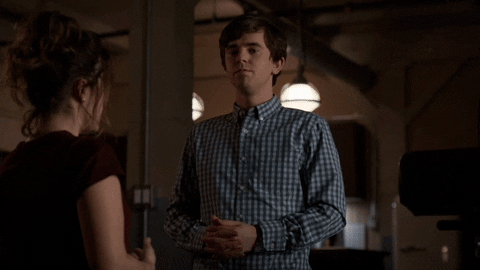In the journey of love and relationships, communication plays a pivotal role. But what happens when this vital aspect becomes a barrier instead of a bridge? In this thought-provoking article, we delve into the perplexing issue of struggling to connect with our partners due to communication barriers. Whether it’s a lack of understanding, misinterpretation, or simply feeling unheard, these communication challenges(Why I Struggle to Connect with My Partner.) can cause frustration and take a toll on our relationship’s health.
By unraveling the underlying reasons behind this struggle, we can gain valuable insights into finding effective solutions. Through personal stories, expert advice, and research-backed strategies, we explore the various factors that contribute to communication barriers. We shed light on the impact of different communication styles, past experiences, and emotional dynamics within a relationship. Furthermore, we uncover the ways in which gender differences, cultural backgrounds, and technology influence our ability to connect with our partners.
FOR ADULTS ONLY
1.Connect with My Partner. CLICK HERE
2.Connect with My Partner. CLICK HERE
3.Connect with My Partner. CLICK HERE
4.Connect with My Partner. CLICK HERE
5.Connect with My Partner. CLICK HERE
6.Connect with My Partner. CLICK HERE
Unveiling the Communication Barrier: Understanding Why I Struggle to Connect with My Partner.
Join us on this enlightening journey as we uncover the complexities surrounding the communication barrier. Discover how understanding and addressing these challenges can lead to deeper connections, greater intimacy, and a stronger bond with our loved ones.
Communication is the cornerstone of any healthy relationship, yet so many of us find ourselves struggling to connect with our partners. I’ve been there—feeling like every word I say either falls flat or sparks an argument. It can be frustrating and isolating. But through understanding and effort, overcoming communication barriers is possible.
In this guide, I’ll explore the reasons behind communication struggles, their impact on relationships, and actionable strategies to foster deeper connections.
Common Communication Barriers in Relationships
Communication barriers can manifest in subtle or obvious ways, but they all hinder genuine connection. Here are the most common ones:
- Assumptions and Misunderstandings
- Assuming your partner understands your thoughts or intentions without expressing them clearly.
- Emotional Triggers
- Reacting defensively or shutting down due to past experiences or unresolved feelings.
- Different Communication Styles
- One person may prefer direct, verbal communication, while the other relies on nonverbal cues or emotional expression.
- Technology and Distractions
- Constant phone use or multitasking can diminish meaningful interactions.
- Lack of Vulnerability
- Fear of judgment or rejection may prevent open conversations about feelings and needs.
The Impact of Communication Barriers on Relationships
Poor communication doesn’t just create frustration—it erodes trust, intimacy, and overall relationship satisfaction. When partners fail to communicate effectively, it can lead to:
- Unresolved Conflicts
- Misunderstandings pile up, creating tension and resentment over time.
- Emotional Distance
- Lack of connection leaves both partners feeling unheard or unloved.
- Decreased Intimacy
- Emotional disconnects often translate into physical disconnection.
- Increased Anxiety and Stress
- Miscommunication can leave one or both partners feeling uncertain about the relationship’s future.
Recognizing and Understanding Your Communication Style
Understanding my communication style was a game-changer for me. People communicate differently, and identifying your tendencies can help you adapt and connect better. Here are the primary communication styles:
- Assertive
- Direct and honest without being aggressive. This is the healthiest style for relationships.
- Passive
- Avoiding confrontation often leads to unspoken frustrations.
- Aggressive
- Overly aggressive or dismissive, which can intimidate or alienate others.
- Passive-Aggressive
- Expressing frustration indirectly, often through sarcasm or sulking.
By reflecting on your tendencies, you can better understand how you approach conversations and conflicts.
Identifying and Addressing Communication Barriers in Your Relationship
Here’s how I identified and addressed the communication barriers in my relationship:
- Reflect on Patterns
- Are there recurring arguments or topics that create tension? These patterns often highlight communication issues.
- Acknowledge the Barriers
- Openly discuss the specific obstacles you both face with your partner.
- Take Responsibility
- Focus on what you can control, such as improving your communication habits.
- Address the Root Causes
- Is stress, past trauma, or external pressure contributing to the barriers? Identifying the root cause is essential for meaningful progress.
Effective Communication Strategies for Overcoming Barriers
These strategies have been lifesavers for me and can help you foster healthier conversations:
- Use “I” Statements
- Say, “I feel hurt when…” instead of “You always make me feel…” This reduces defensiveness.
- Practice Active Listening
- Fully focus on your partner without interrupting. Show you’re engaged by nodding or summarizing their points.
- Set Aside Time to Talk
- Schedule uninterrupted time for meaningful conversations, away from distractions.
- Be Clear and Specific
- Avoid vague statements. Clearly express your needs and feelings.
- Stay Calm and Respectful
- Avoid raising your voice or using accusatory language, even during disagreements.
Seeking Professional Help for Communication Issues
Sometimes, self-help strategies aren’t enough. I’ve learned that seeking professional guidance isn’t a sign of failure—it’s a step toward growth. Therapists or counselors can help by:
- Identifying Hidden Issues
- Professionals can uncover underlying dynamics you might not recognize.
- Teaching Skills
- Therapists can equip you with tools for healthier communication.
- Facilitating Conversations
- They create a safe space for open, honest dialogue.
The Role of Empathy and Active Listening in Improving Communication
Empathy transformed how I approach conversations. When I truly listen and try to understand my partner’s perspective, communication feels less like a battle and more like teamwork.
Here’s how you can practice empathy and active listening:
- Put Yourself in Their Shoes
- Consider how your partner might feel in the situation.
- Validate Their Feelings
- Even if you don’t agree, acknowledge their emotions. For example, say, “I can see why you’d feel that way.”
- Focus Fully on Them
- Avoid formulating your response while they’re speaking. Let them finish before you reply.
Building Trust and Emotional Connection Through Effective Communication
Trust is the foundation of any relationship, and effective communication strengthens it. Here’s what I’ve learned about building trust:
- Be Consistent
- Follow through on what you say. Reliability fosters trust.
- Share Your Vulnerabilities
- Open up about your fears or insecurities. Vulnerability deepens emotional connection.
- Express Appreciation
- Regularly show gratitude for your partner’s efforts and qualities.
- Resolve Conflicts Quickly
- Address issues as they arise rather than letting them fester.
Conclusion: The Importance of Open and Honest Communication in Relationships
Open and honest communication is the glue that holds relationships together. While barriers are inevitable, they don’t have to define your connection. By understanding your communication style, addressing obstacles, and practicing effective strategies, you can deepen your bond with your partner.
Remember, building strong communication takes time and effort, but the rewards—a fulfilling and harmonious relationship—are worth it.
Frequently Asked Questions (FAQs)
1. What are the most common communication barriers in relationships?
Common barriers include assumptions, emotional triggers, different communication styles, and distractions like technology.
2. How can I identify communication issues in my relationship?
Pay attention to recurring arguments, unresolved conflicts, and feelings of emotional distance.
3. What’s the best way to improve communication with my partner?
Use active listening, “I” statements, and set aside dedicated time for meaningful conversations.
4. When should I seek professional help for communication problems?
Consider therapy if communication issues persist despite your efforts or if they’re causing significant distress.
5. How can I practice empathy in conversations?
Focus on understanding your partner’s perspective, validate their feelings, and avoid interrupting.
6. Can different communication styles affect a relationship?
Yes, mismatched styles can lead to misunderstandings. Understanding and adapting to each other’s preferences can improve communication.
7. How does trust impact communication in a relationship?
Trust creates a safe environment for open and honest dialogue, strengthening the emotional bond.
By focusing on communication, you can transform your relationship into one where both partners feel heard, valued, and connected.

